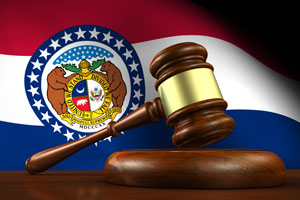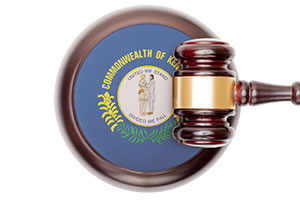ExpertPages recently reported an appellate decision in Florida that upheld the admission of expert testimony given by cadaver dog handlers. The handlers testified that when their dogs “alerted” after sniffing parts of a car, they were telling the handler that they smelled the remains of a body.
The human ability to interpret a dog’s thoughts is suspect, at best. When a dog brings us her leash, we assume she wants to go for a walk, but maybe she just enjoys carrying her leash. The Florida cadaver dog handlers assume that their dogs are alerting because they smell bodily remains, but one of them admitted that his dog once alerted when he smelled shrimp.
The point is that nobody can be certain what a dog intends to communicate because nobody can read a dog’s mind. Dogs react to verbal cues from their owners and have an intense desire to make their owners happy. Perhaps they react in ways that they hope will please their owners, even if the reaction is unrelated to their training.
The Florida decision paid lip service to Daubert but its analysis of the reliability of dog handler testimony was cursory. While not applying Daubert, a federal court in Utah recently made a more thorough analysis of the science underlying a dog’s expert testimony, as filtered through human handlers.
Traffic Stop
Desmond Travis Jordan was suspected of involvement in drug crimes. A police detective with less than five years of law enforcement experience began conducting surveillance of Jordan’s residence.
Detective Allen alerted a K9 handler to be ready in case Jordan left his home. Having prejudged Jordan’s likely guilt, Allen was planning to have a drug dog sniff Jordan’s vehicle to provide probable cause for a search.
Allen saw a vehicle leaving Jordan’s home. Allen didn’t know who was driving, but he immediately contacted Officer Moore, the K9 handler, to advise him that he should be ready to respond to a traffic stop.
Two minutes later, Allen stopped the vehicle, allegedly for speeding. Allen then contacted Moore and asked him to come to the scene with his drug dog.
Dog Sniff and Vehicle Search
Moore arrived with Tank, the drug dog. A video showed that Moore walked Tank around Jordan’s car three times. Tank did not seem particularly interested in the car. He displayed greater interest in sniffing the sidewalk and watching traffic pass.
Apparently unhappy with Tank’s response, Moore tapped on the doors and the trunk several times. Even then, Tank showed little interest. He did sniff the car, however, which Moore interpreted as an “alert.” Tank did not give the final response he was trained to give upon detecting the odor of drugs — he did not sit — but Moore testified that as Tank’s trainer, he knew what Tank was trying to say.
Armed with Moore’s opinion that Tank had detected the odor of drugs, Allen searched Jordan’s vehicle. Allen found an empty marijuana pipe and a firearm. Jordan was charged with a federal crime related to his possession of the firearm.
Drug Dog Training
Tank the drug dog immigrated from Slovakia in March 2018. Tank suffers from a degenerative hip disease, an unfortunate condition for a dog that is trained to give alerts by sitting.
Moore began training Tank through the Utah POST program in April 2018. Training included the detection of various drugs by scent. Tank was certified as a drug dog in July 2018.
Handlers must be trained as well as the dogs. The POST system tells handlers to disregard normal dog reactions to interesting smells, including focused sniffing and excitement. These are normal behaviors of all dogs and offer no evidence that the dog smelled an odor it was trained to detect.
Tank was trained to sit or lay down when it detected the highest concentration of a drug odor. The training manual claims that the dog’s trained response is objective evidence of the presence of a target odor. The manual does not explain how to distinguish between “I am laying down because I smell heroin” and “I am laying down because I am tired.”
Moore continued training Tank after Tank was certified. However, 27 of the 28 training sessions involved locations where drugs were present. Only one session involved a session where no drugs were present. The sessions may therefore have trained Tank to expect the odor of drugs and to respond accordingly.
In addition, on all but one occasion, Moore was aware that drugs were present. That knowledge created the risk that he would continue to have Tank sniff until Tank alerted. In other words, Tank was trained to alert because Moore wanted him to alert. Whether Tank actually smelled drugs is something that only Tank knows.
Dog Sniff Expert
Jordan moved to suppress the results of an illegal search. Allen needed probable cause to search Jordan’s car. Jordan contended that Moore’s testimony did not establish that his car probably contained illegal drugs.
Jordan called Mary Calbk as an expert witness. Calbk is a POST K9 Evaluator in Nevada and a POST instructor in California.
Calbk explained the concept of “handler bias.” Since dogs are highly motivated to make their owners happy, handlers can easily trigger a false response when handlers expect to find drugs. Even the best trained dogs can react to subtle visual cues and give a response because they believe the handler will be pleased by a response.
The best way to avoid handler bias is double-blind training, in which the handler does not know whether a particular location contains drugs. The dog’s response is judged by a third person, not the handler, who also does not know whether drugs are present. Tank never had double-blind training.
Of course, training makes little difference in a case like Jordan’s, where both Allen and Moore clearly expected Jordan’s car to contain drugs and where Tank never gave the trained response. Calbk testified that the video showed Tank engaging in ordinary dog behavior. In her expert opinion, nothing in that behavior suggested that Tank smelled drugs.
Court’s Decision
Tenth Circuit precedent has been quite forgiving about drug dog “alerts,” even going so far as to say a drug dog need not necessarily give a “final indication.” One might wonder what the point is of training dogs to give a final indication if their handlers are free to ignore that training and substitute their own opinions of what was in the dog’s mind for the objective evidence they are trained to gather.
Judge Waddoups wisely recognized that precedent did not address cases in which a dog’s behavior — sniffing a car after its handler has rapped on the car — is not even slightly unusual. Every dog sniffs. Drug dogs are trained to sniff. When a trained drug dog sniffs but does not alert in any way, there is not the slightest bit of evidence that the dog smelled the odor of a drug.
While courts typically rely on a training certification to prove a dog’s reliability, Utah’s certification apparently follows no recognizable standard. Without double-blind (or even single-blind) training, it is impossible to know whether the dog has been taught to react to the odor of drugs rather than visual cues.
The court understood that Allen and Moore were putting on a show by bringing Tank to the scene. They intended to search the car and were looking for an excuse to do it. Moore’s testimony that he interpreted Tank as alerting to the odor of drugs was, in the court’s view, not credible. Accordingly, the court suppressed evidence obtained in the search.
The court’s holding protects the Fourth Amendment rights of individuals to be free from unlawful searches: “Allowing a K9’s alert to support a finding of probable cause to search a vehicle on the unverifiable, subjective interpretation of the handler would seriously erode long protected Constitutional rights.” The Fourth Amendment “becomes meaningless if the dog’s communication of its detection of drugs is so subjective that it is nothing more certain than a reflection of the handler’s hunch that drugs must be there.”
Lessons Learned
Allen and Moore tried to circumvent the Fourth Amendment. Jordan’s defense lawyer wisely engaged the services of an expert witness to demonstrate that the officers had no probable cause to search Jordan’s car. Whenever humans claim they know exactly what a dog intends to communicate, an expert witness can provide invaluable testimony to assure that the human witnesses do not get away with implausible claims about their ability to read a dog’s mind.












